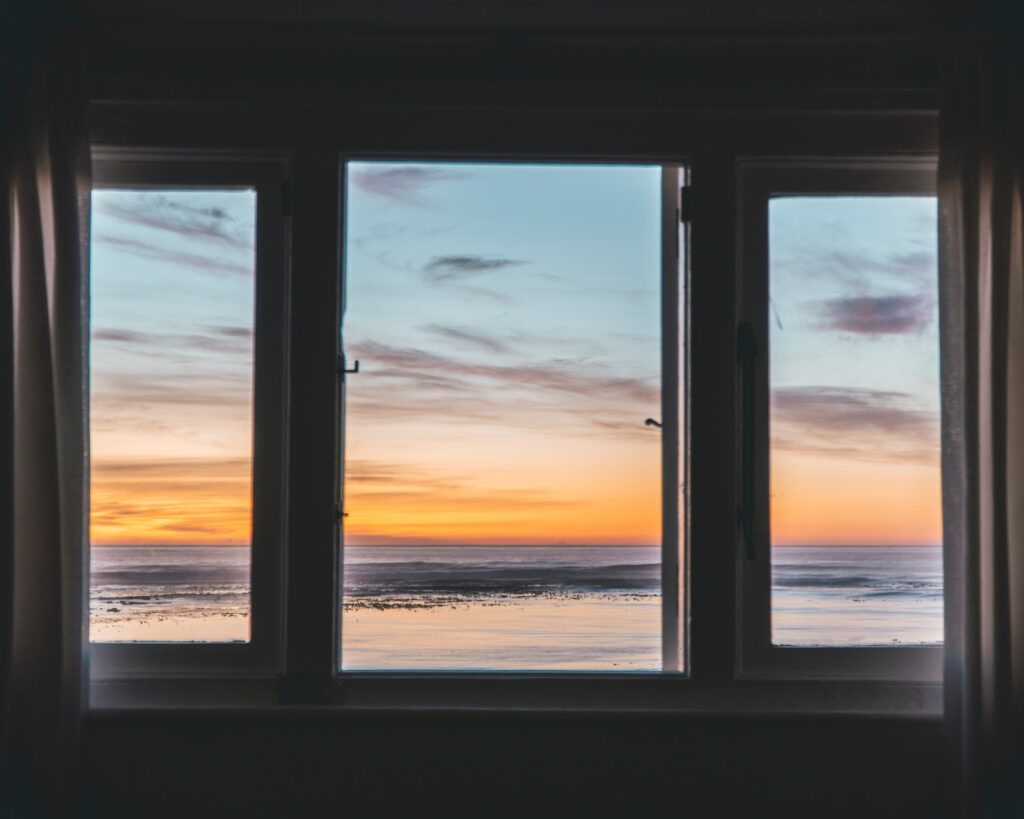So, you’ve decided it’s time to replace those old, drafty windows in your house. Not only will this refresh the look of your home, but it’s also a great opportunity to upgrade to more energy-efficient models.
However, it’s important to keep in mind that choosing energy-efficient windows is not as simple as picking the most attractive ones. There’s a lot to consider, from the type of glazing to the frame material and even the installation process.
But don’t worry, we’re here to help guide you through the process and make sure you make the right choice for your home and your wallet. This guide will provide top tips to help you navigate the world of energy-efficient window replacements, ensuring you invest wisely for maximum comfort, cost savings, and environmental benefits.
Window Frame Materials: Choosing the Best Option for Your Home
Selecting a suitable frame material is pivotal in the quest for energy-efficient windows. Understanding the distinctions between various frame materials and their relative strengths will enable you to make an informed choice. Here are the key features of popular frame materials:
- Vinyl: Vinyl frames offer excellent insulation, require minimal maintenance, and are generally less expensive than other options. However, some homeowners may not find their appearance as appealing as wood or aluminum frames.
- Wood: Wooden frames deliver exceptional insulation and a classic, timeless look. While they typically demand more maintenance than other materials, they can be painted or stained to match your home’s aesthetic. Keep in mind that wood frames may be costly, and they are susceptible to warping and rotting in damp conditions.
- Aluminum: Aluminum frames are durable, low-maintenance, and resistant to various weather conditions. Notwithstanding their impressive strength, they may not provide the same level of insulation as other materials. This may be offset with thermal breaks that separate the interior and exterior surfaces, reducing heat transfer.
Glass Types and Glazing Options: Maximizing Energy Efficiency
Modern energy-efficient windows employ a range of glass and glazing technologies to minimize heat transfer and enhance insulation. Consider the following types of glass and glazing options for your window replacements:
- Double-glazed windows: Featuring two panes of glass separated by a layer of gas or air, double-glazed windows dramatically reduce heat transfer and provide excellent insulation compared to single-pane windows.
- Triple-glazed windows: Similar to double-glazing, triple-glazed windows contain three panes of glass, offering even greater insulation and energy efficiency, albeit at a higher cost.
- Low-E glass: Low-emissivity (Low-E) glass features a thin, transparent coating that reflects heat while allowing light to pass through. This technology minimizes heat transfer, improves insulation, and protects your home’s interior from fading due to ultraviolet (UV) rays.
Window Styles and Operation: Balancing Functionality and Efficiency
The style and operation of your windows can influence their energy efficiency. Some popular window styles and their energy performance characteristics include:
- Casement windows: Hinged on one side and opening outward with a crank handle, casement windows provide excellent sealing when closed, making them a highly energy-efficient option.
- Double-hung windows: Featuring two vertically sliding sashes, double-hung windows are a versatile and traditional option. However, they may not seal as effectively as casement windows due to their sliding mechanism, which can slightly impact energy efficiency.
- Awning windows: Similar to casement windows but hinged at the top, awning windows facilitate effective sealing and provide excellent insulation. They can also offer enhanced ventilation while protecting your home’s interior from rain.
Energy Ratings and Certification: Ensuring Optimal Efficiency
Window energy ratings and certifications can guide your decision-making by indicating the efficiency and performance of different products. Keep an eye out for the following certifications and ratings:
- ENERGY STAR certification: Look for windows with an ENERGY STAR label, which indicates that the product has met stringent energy efficiency guidelines established by the U.S. Environmental Protection Agency (EPA).
- National Fenestration Rating Council (NFRC) ratings: The NFRC rates windows based on factors such as U-factor (rate of heat transfer), Solar Heat Gain Coefficient (SHGC), visible light transmittance, and air leakage. Reference these ratings to select a window that suits your region’s climate and your specific insulation requirements.
Professional Installation and Warranties: Securing Your Investment
Choose a reputable company like BMR Homes Inc. Remodeling and Restoration for your window replacement project to ensure professional installation and robust warranties:
- Skilled installation: A properly installed window is crucial for maximizing energy efficiency and preventing drafts, leaks, and moisture infiltration. BMR Homes Inc. Remodeling and Restoration boasts skilled professionals with expertise in window installation, ensuring your new windows perform optimally.
- Warranties: Inquire about comprehensive warranties that protect your investment, covering the frame, glass, and workmanship. A strong warranty demonstrates the company’s confidence in its products and services.
Energy-Efficient Window Replacements: Making the Right Choice
Consult with BMR Homes Inc. Remodeling and Restoration’s team of skilled professionals to discuss your energy-efficient window replacement needs in Hoover, AL, and let our family-owned business help identify the ideal window solutions for your home, ensuring customized design, exceptional workmanship, and lasting customer satisfaction. Contact us today to get started on your window replacement journey.

